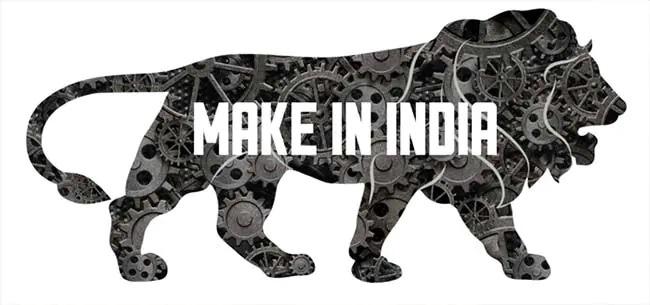
8 minute read
MAKE IN INDIA
Japanese firms rank India as top investment destination

Advertisement
By Mahua Venkatesh
New Delhi, Dec 27: Japan Inc is upbeat about India’s economic growth story despite rising geopolitical uncertainties. More than 72 per cent of Japanese companies said they were keen to expand their business operations in India which topped the chart, a survey by Japan External Trade Organisation (JETRO) revealed. Notably only 33.4 per cent said that they would be keen to expand their business operations in China, the survey revealed.
Not just that. India also topped the list of countries from which Japanese firms expected to increase their profit margins amid the rising global challenges. According to the survey 63.2 per cent of the companies expected their profitability to increase while the figure was 26.8 per cent for China.
Vietnam is a close second with 60 per cent firms opting for the Southeast Asian nation.
"Most Japanese companies are looking at India to expand their businesses. The experience of the Japanese companies which are already operating in India has been very good. The sentiment here is positive," Takashi Suzuki,
Chief Director General (South Asia), JETRO, told India Narrative.
Suzuki added that Japanese companies are also looking at India for their product development for the global markets. "They would manufacture here and then export. Africa and the western countries are the main regions that the companies would be looking to export their products from India," he said, adding that the Aatmanirbhar Bharat programme will be a game changer in this respect.
"It goes with (Prime Minister Narendra) Modiji's vision as well that you make in India and then export," Suzuki said.
In May, Prime Minister Modi, who was in Japan to attend the QUAD summit, held a meeting with the top 30 CEOs of Japanese companies. "Make in India for the World" was Modi's message to the Japanese business community.
In August Daikin India announced that it will invest Rs 5 billion over the next three years to establish a research and development centre in Neemrana, in Rajasthan.
The centre will conduct R&D on air conditioners for the Indian market as well as for exports.
The centre is expected to start operations by December 2023.
Suzuki, one of the most trusted brands here, set up Suzuki R&D Center India Private Limited with the aim to strengthen competitiveness in the country by efficiently linking the R&D departments in India and Japan.
Several Japanese majors including Panasonic, Toshiba, Sony and NEC already have their R&D centres in India. In 2021, Fujitsu set up its R&D base.
At present, Japan is the fifth largest investor in India. The cumulative foreign direct investment (FDI) stood at $37.7 billion between April 2000 and till June, this year.
In March, Japanese Prime Minister Fumio Kishida announced an investment plan of Rs 3,20,000 crore (5 trillion yen) in India in the next five years.
Japanese clothing brand Uniqlo, which forayed into the Indian market just three years ago, turned profitable this year despite huge Covid related challenges. The company registered a net profit of Rs 21.4 crore in 2021-22 compared to a loss of Rs 36.1 crore in the previous year.
"To turn profitable in just three years is a big thing. Typically a company looks at a 10 year horizon to turn profitable, but Uniqlo has managed to record profits in three years," Suzuki noted.
Suzuki also said that despite the Covid wave, India managed to turn around the situation within record time. "India was the only country to turn around in such a short time," he said.
(The content is being carried under an arrangement with indianarrative.com)

India going all out to give necessary impetus to indigenous manufacturing

New Delhi, Dec 14: In the last few years, India has been focussing a lot on indigenous manufacturing. The Central government has taken up various measures to facilitate manufacturing in the country.
The Centre has undertaken various steps to boost domestic and foreign investments in India as well. These include introduction of Goods and Services Tax, reduction in corporate tax, interventions to improve the ease of doing business, FDI policy reforms, measures for reduction in compliance burden, policy measures to boost domestic manufacturing through public procurement orders and Phased Manufacturing Programme (PMP).
In order to achieve India's vision of becoming 'Aatmanirbhar' and to strengthen its manufacturing capabilities and exports, an outlay of Rs 1.97 lakh crore has been announced in the Union Budget 2021-22 for PLI schemes in 14 key manufacturing sectors, beginning in fiscal year (FY) 202122. With the announcement of PLI Schemes, significant creation of production, skills, employment,
Keeping in view India's vision of becoming 'Aatmanirbhar', Production Linked Incentive (PLI) Schemes for 14 key sectors have been announced with an outlay of Rs 1.97 lakh crore to enhance the country's manufacturing capabilities and exports.
economic growth and exports is expected over the next five years and more. The reforms taken by the Government have resulted in increased Foreign Direct Investment (FDI) inflows in the country. FDI inflows in India stood at $45.15 billion in 2014-2015 and have continuously increased since then and India registered its highest ever annual FDI inflow of $84.84 billion (provisional figures) in the financial year 2021-22, reported NewsonAir.
The annual growth rate of the manufacturing sector as per the Index of Industrial Production (IIP), with base year 2011-12, for 2021-22 is 11.8 per cent. The government aims to make India the global manufacturing hub. It also aims to increase the sector's GDP share to 25 per cent from the existing 16 per cent, and create 100 million new jobs by 2022.
‘Make in India' is an initiative that was launched on September 25, 2014, to facilitate investment, foster innovation, build best-inclass infrastructure and make India a hub for manufacturing, design and innovation. It is one of the unique single, vocal for local initiatives that promote India's manufacturing domain to the world. The Indian government focused a lot on improving Ease of Doing Business and Ease of Living by simplifying, rationalising, digitizing and decriminalising government to business and citizen interfaces across ministries/states/UTs. The key focus areas of the initiative are simplification of procedures, rationalization of legal provisions, digitization of government processes, and decriminalization of minor, technical or procedural defaults.
Indian smartwatch players gear up to beat Chinese, global rivals
New Delhi, Dec 25 (IANS) The Indian smartwatch market has not only grown exponentially on the home turf, but also performed exceptionally well at the global level. And the domestic players expect to repeat the feat in 2023, with the expectation to overtake both Chinese and global rivals.
In Q2 2022, India overtook China to become the second-largest smartwatch market globally for the first time, growing 347 per cent (year-on-year), according to Counterpoint Research.
China, which ranked second in Q1, was pushed down to the third place with a 10 per cent (year-onyear) decrease in its shipments.
According to Prabhu Ram, Head-Industry Intelligence Group, CMR, homegrown smartwatch brands will seek to raise their domestic value addition to further increase their overall competitiveness, not just against the Chinese, but global smartwatch brands.
"After catering to value-conscious buyers in the affordable and competitive Indian smartwatch market, the smartwatch brands will aim to increase their market pie by targeting higher price tiers," Ram told IANS.
Indian brands such as FireBoltt and Noise took top spots in the global market share in the
June quarter (Q2) amid macro uncertainties such as inflation and geopolitical tensions.
Commenting on the company's growth, Amit Khatri, Co-founder, Noise, told IANS that they have been at the forefront of India's smartwatch market with a 30 per cent share, "also becoming the only homegrown brand to make it to the top 3 smartwatch brands globally".
"We closed FY22 at Rs 850 crore and aim to close FY23 at Rs 2,000 crore. Being one of the first Indian brands to localise the production of smart wearables in India, we are bullish about ramping up our Make in India efforts by bringing 80 per cent of manufacturing to India by yearend," Khatri added.
According to Arnav Kishore, Founder and CEO at Fire-Boltt, 2022 has been the best year for the company so far.
"We witnessed tremendous growth this year and bagged the No. 1 spot in the smartwatch category in two consecutive quarters (Q1 and Q2). We also climbed up in our global rankings and today we are the fourth largest smartwatch brand in the world," Kishore told IANS.
The company will move towards 100 per cent localisation in the next three months, in terms of its India manufacturing plan, he said. At the moment, Fire-Boltt is at 70 per cent localisation.
In Q3 2022, India's market grew 171 per cent (year-on-year) to become the biggest smartwatch market globally, according to Counterpoint. Noise grew 218 per cent (year-onyear) to regain the top spot in the Indian market, while FireBoltt ranked second.







